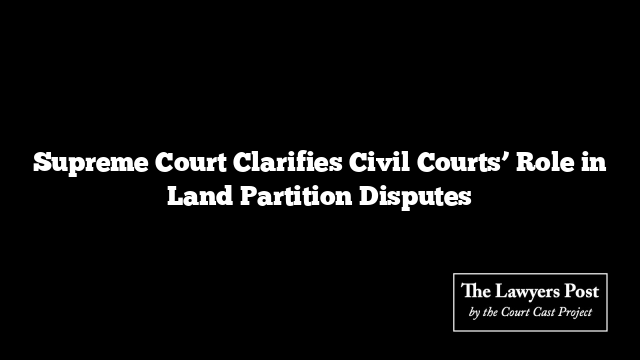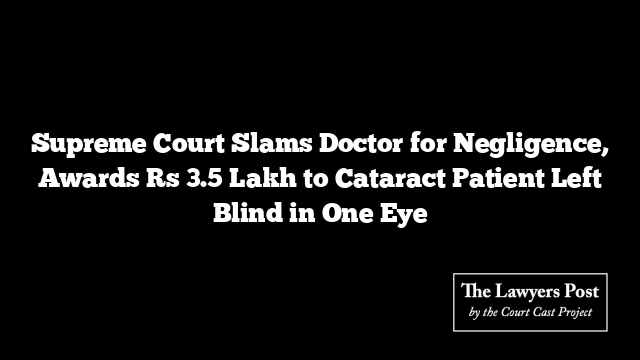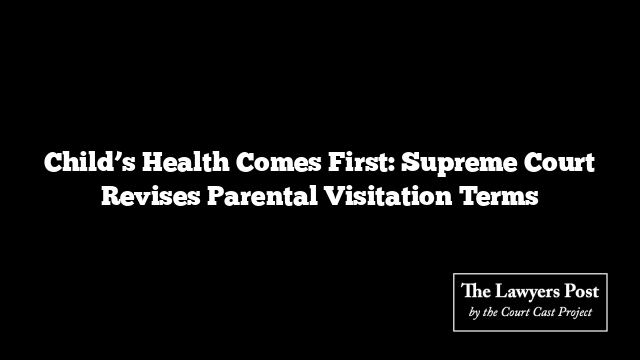The Supreme Court has clarified that while revenue authorities have exclusive jurisdiction to execute and enforce land partitions under the Assam Land and Revenue Regulation, 1886, this does not bar civil courts from deciding disputes about ownership, title, and rights over the property.
A bench led by Justice JB Pardiwala and Justice R Mahadevan ruled on an appeal challenging the Gauhati High Court’s interpretation of the Regulation. The dispute arose after revenue authorities declined to partition a property, citing lack of possession and consent among co-owners. This prompted a series of appeals through different courts, culminating in the Supreme Court’s intervention.
The Court underscored that revenue authorities are empowered solely to implement partitions and cannot adjudicate disputes over property rights. Civil courts retain the authority to decide such issues, including determining ownership shares and entitlement to partition. It observed that any action by revenue authorities disregarding a civil decree could be reviewed and remitted back by the civil court.
The Court’s judgment emphasized harmony between general laws like the Civil Procedure Code (CPC) and specific regulations such as the Assam Land and Revenue Regulation. It concluded that civil court jurisdiction is not ousted unless there is a direct conflict with special laws—a scenario not present in this case.
By allowing the appeal, the Supreme Court reinforced the principle that determining ownership rights remains within the civil court’s domain, even when procedural aspects of partition are assigned to revenue authorities.





